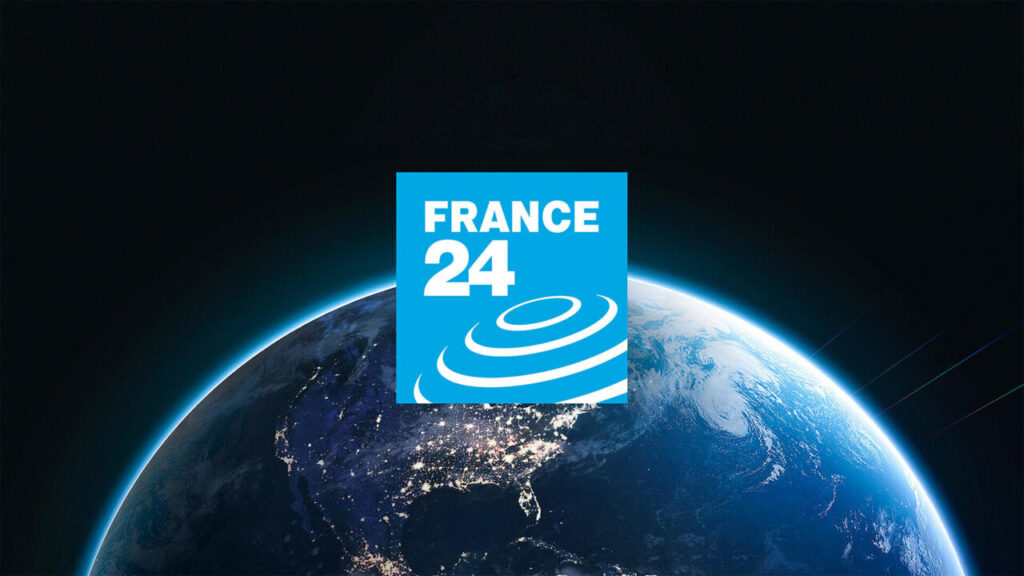ISTANBUL (AFP) – Many hearts filled with pride when Merve Dizdar won Turkey’s first Best Actress award at the Cannes Film Festival and the women’s volleyball team lifted the European trophy this month. But their victory also ignited a culture war.
Dizdar, a petite 37-year-old, was all smiles as she dedicated her victory to “all my sisters” who dream of a better life in Turkey.
It was a poignant message delivered on the eve of elections in May, when veteran President Recep Tayyip Erdogan capitalized on his conservative Islamic base to win. This led to Dizdar being ordered to dress down by Turkey’s media regulator.
Turkey’s volleyball team, nicknamed the “Sultans of the Net,” won the first national sports team title in national memory with the help of an openly lesbian player who occasionally dyes her hair pink.
But state television has refused to interview Ebral Karakurt, who has been criticized on social media for representing LGBTQ rights.
Thus, two moments that could have lifted Turks’ spirits in the midst of one of the most painful economic crises in decades have become targets of division and hatred.
Özer Senkar, founder of the research organization Metropol, said Turkey – an overwhelmingly Muslim nation formed a century ago from the remains of the Ottoman Empire by a strictly secular field marshal – was divided. He said the rift appears to be getting worse.
“Social polarization has become so great that everyone is finding excuses to fight everything, and art and sports are no exception,” Senkar told AFP.

Ebral Karakurt is one of the only openly gay or lesbian athletes in Turkey © JOHN THYS / AFP
Dogan Gulpinar, a historian at Istanbul Technical University, said that Erdogan’s defeated political opponents have turned to culture and sports to raise their voices against his rule, marred by the purges that followed an attempted military coup in 2016. He said there is a possibility that they will start making more use of it.
“After the election defeat, the (secular) region became more accepting of culture and sports,” Gurpinar said.
“Beautiful days”
In On Dry Grass, directed by Turkish director Nuri Bilge Ceylan, which won the Palme d’Or in 2014, Dizdar plays a former activist who loses a leg in a bombing and tries to rebuild his life.
After his name was read out at the Cannes awards ceremony, Dysdal appeared momentarily confused, wondering if he had heard it wrong.
Reading from a prepared script in a trembling voice, she denounced the position Turkish women find themselves in after 20 years of President Erdoğan’s rule.

President Recep Tayyip Erdogan relied on his conservative base to secure re-election in May © OZAN KOSE / AFP
“I dedicate this award to all the sisters who never give up hope no matter what, and to all the fighting spirit who are waiting for the beautiful days they deserve in Turkey,” she said.
Secular opposition leader Kemal Kilicdaroglu, who lost to Erdogan in the presidential run-off the next day, liked Mr. Disdar’s words.
“Today, together we give democracy to all the fighting spirits who are looking forward to the beautiful days that Turkey deserves,” Kilikdaroglu said.
However, she was heavily criticized by the pro-government media that currently dominate Turkey’s political landscape.
“Merve Dizdar, you will learn to respect your country,” warned Ibrahim Usulu, vice president of the RTUK media watchdog group.
“I’ll hug everyone”
The volleyball team, whose players danced under the flag of Turkey’s secular founding after its latest victory, drew as much social media scorn as Dizdar, but no one received more scorn than Karakurt. .
Karakurt, one of Turkey’s few openly gay athletes, saw the phrase “lezbiyen istemiyoruz” (we don’t need lesbians) start trending on social networks.

Turkish state television refused to allow Ebrar Karakurt to be interviewed after the team’s victory © YASIN AKGUL / AFP
Turkish state-run TRT television apparently avoided interviewing Karakurt during live coverage of the team’s celebration.
Religious leaders urged their followers not to cheer for the team, a move that echoes Erdogan’s own denial of LGBTQ rights during his re-election campaign.
President Erdoğan concluded by congratulating the players, adding that Turks “must not use culture, art and sport as tools of division.”
But the tone he set during the May election campaign left the door wide open for conservatives to harass Mr. Karakurt, who responded with messages of love.
“This is how I hug everyone,” the star posted online, sharing a photo of herself facing fans with open arms.
“Elementary school bullying”
Historian Gulpinar said the volleyball team shattered the conservative perception that the sport was for men.
Gulpinar said the team “concisely combined women’s power, liberation and national pride.”

Turkey’s LGBTQ community is fighting hard to protect their rights in the Muslim-majority country © YASIN AKGUL / AFP
Polling firm Senkar agreed: “This will seriously hurt the feelings of conservative and patriarchal sections of society.”
Yildiz Tarr of the Chaos Gay and Lesbian Cultural Research and Solidarity Association said Karakurt also showed that LGBTQ people are no longer afraid despite the hate.
“They stand tall and unashamedly in the face of elementary school-level bullying,” Tarr told AFP.
“And this bothers those circles even more.”
© 2023 AFP


